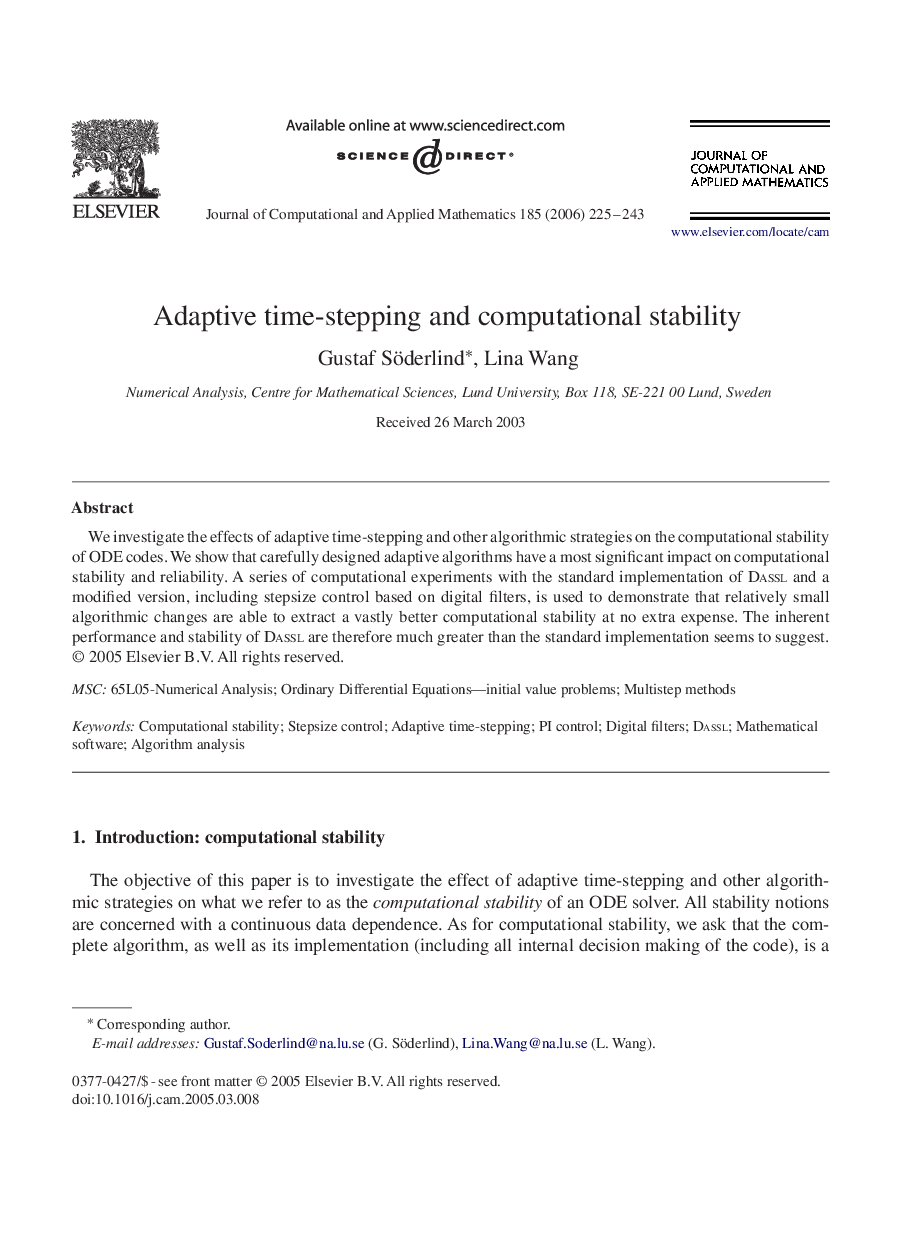| Article ID | Journal | Published Year | Pages | File Type |
|---|---|---|---|---|
| 4643537 | Journal of Computational and Applied Mathematics | 2006 | 19 Pages |
Abstract
We investigate the effects of adaptive time-stepping and other algorithmic strategies on the computational stability of ODE codes. We show that carefully designed adaptive algorithms have a most significant impact on computational stability and reliability. A series of computational experiments with the standard implementation of DASSL and a modified version, including stepsize control based on digital filters, is used to demonstrate that relatively small algorithmic changes are able to extract a vastly better computational stability at no extra expense. The inherent performance and stability of DASSL are therefore much greater than the standard implementation seems to suggest.
Related Topics
Physical Sciences and Engineering
Mathematics
Applied Mathematics
Authors
Gustaf Söderlind, Lina Wang,
